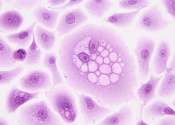Deciphering the male breast cancer genome
Male breast cancer has distinct alterations in the tumor genome that may suggest potential treatment targets, according to a study by Weill Cornell Medicine investigators. They have conducted the first whole genome sequencing ...
Mar 4, 2024
0
0









